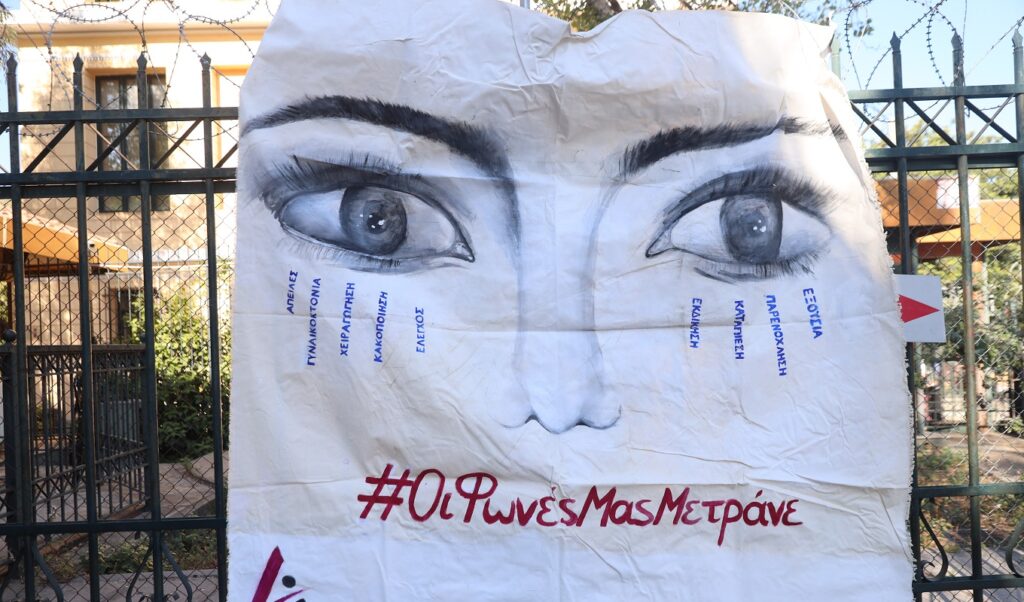The hearing for the murder of Kyriaki Griva continued at the Athens Mixed Jury Court with testimony from Professor of Psychiatry Athanasios Douzenis. The professor, who worked with the psychiatric unit at Korydallos prison, took over the therapeutic monitoring of the defendant after the crime was committed.
Read: Griva trial: “After Sunday, everything changed” – Shocking testimony from DIAS police officer
As he told the court: “The defendant was my patient. He showed intense suicidal ideation and our main goal was to keep him alive. His appearance was that of a broken man who had lost all will to live. I had no knowledge of the case file, but he mentioned a personal history of exhaustion. I formed the impression that he also suffers from personality disorder, which falls within the spectrum of mental illness. From the moment the incident occurred, he said he did not wish to continue living and that he remembered nothing about the act. We cannot say with certainty whether he was telling the truth or not.”
Questions to the psychiatrist
The Court President asked the witness whether “when the defendant says ‘what did I do’, it means he was not conscious of his actions at the time of the crime,” with the professor responding that “unfortunately, in psychiatry the most common answer is ‘perhaps’.”
The President continued to question the psychiatrist about what it means that based on toxicological tests, the defendant had consumed alcohol and pills, asking whether this leads to loss of consciousness, with the witness answering that it is possible.
- President: He managed to locate the victim, stab her, and three hours later was conscious of his act. How do you explain this?
- Witness: I cannot give a clear explanation. There are cases of people who describe a “blackout.” This is a state where movements are automatic, guided by the nervous system, but without memory being recorded.
The witness who served as the defendant’s treating physician said that “in all probability he suffers from antisocial personality disorder, which falls under mental illness.”
When asked whether he has full or diminished responsibility, the professor emphasized: “My position is not decisive, as I was the treating physician. Nevertheless, there are signs of diminished responsibility.” His testimony provoked a strong reaction from the Prosecutor, who submitted successive questions:
- Prosecutor: What exactly is the mental disorder the defendant suffers from?
- Witness: Personality disorder and depression.
- Prosecutor: Is depression usually connected with criminal behavior?
- Witness: No, it is an extremely rare phenomenon. The final judgment on responsibility belongs to the court. As a doctor, I describe the patient’s condition as I experienced it.
“In a severe depressive state”
The witness emphasized that this was “a man in a severe depressive state, who had no memory of the crime.” The prosecutor asked him whether he could understand the wrongful nature of the act and whether his disorder is connected to the crime.
The witness replied: “In psychiatry we consider murder and suicide to be two sides of the same coin. People with personality disorders have high rates of suicidality.”
- Prosecutor: How do you conclude diminished responsibility?
- Witness: It is my personal opinion.
- Prosecutor: As a professor of psychiatry, you are publicly giving a judgment that has grave significance.
- Witness: Yes, and this is my own assessment. When the prosecutor asked whether the defendant attempted to end his life because he realized his act, the witness said his personal assessment is that he wanted to die with her.
The defendant’s defense clarified that the defendant “did not have intellectual disability.” “We believe that his will was affected by mental illness combined with the substances he had consumed,” emphasized his lawyer, Spyros Dimitriou. During the psychiatrist’s testimony, at one point Kyriaki’s father, who was following the proceedings, reacted by saying “the knife got stuck from the five stab wounds, that’s why he couldn’t commit suicide…”




